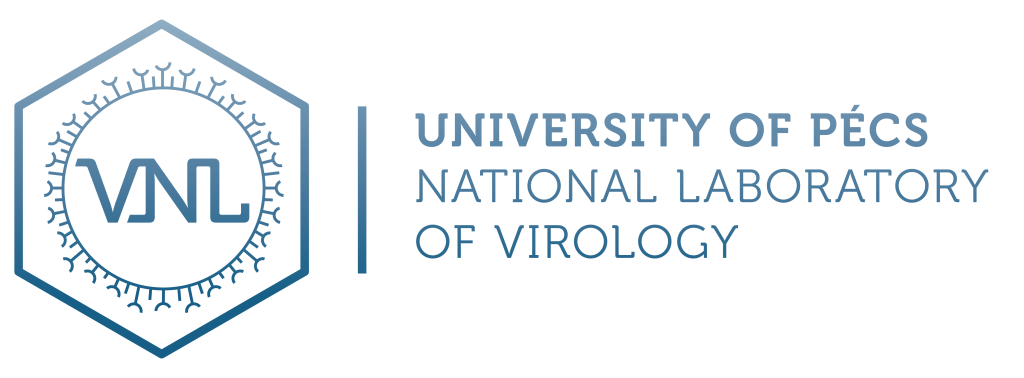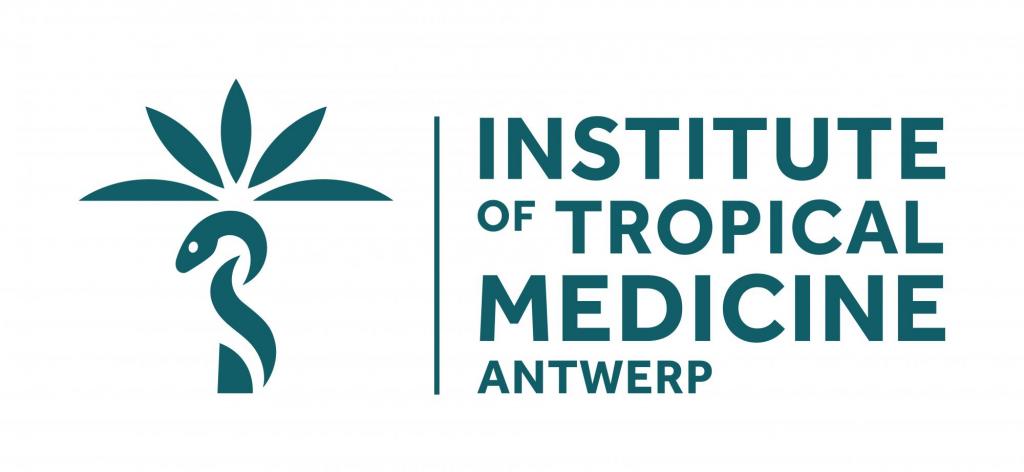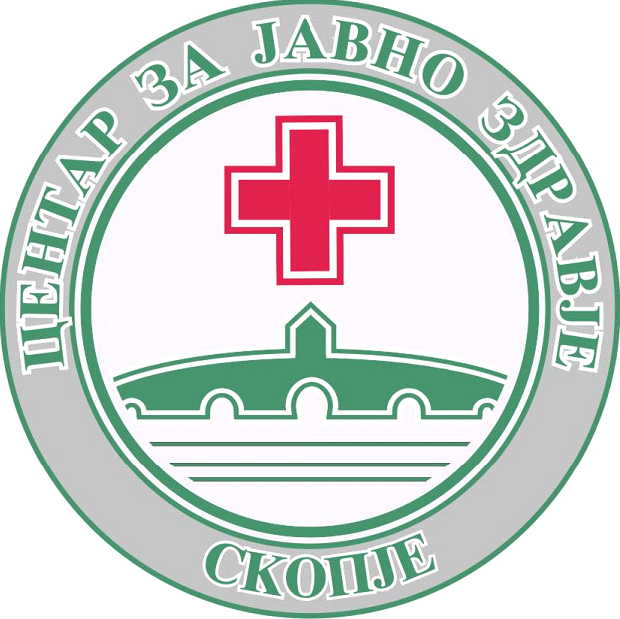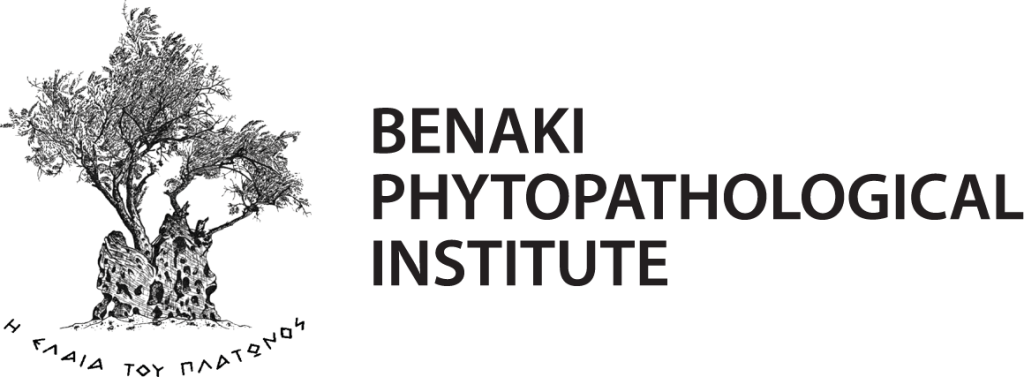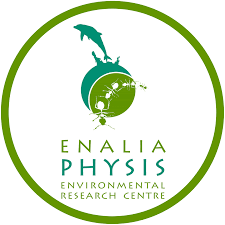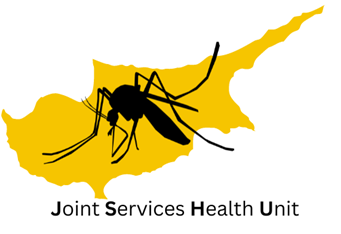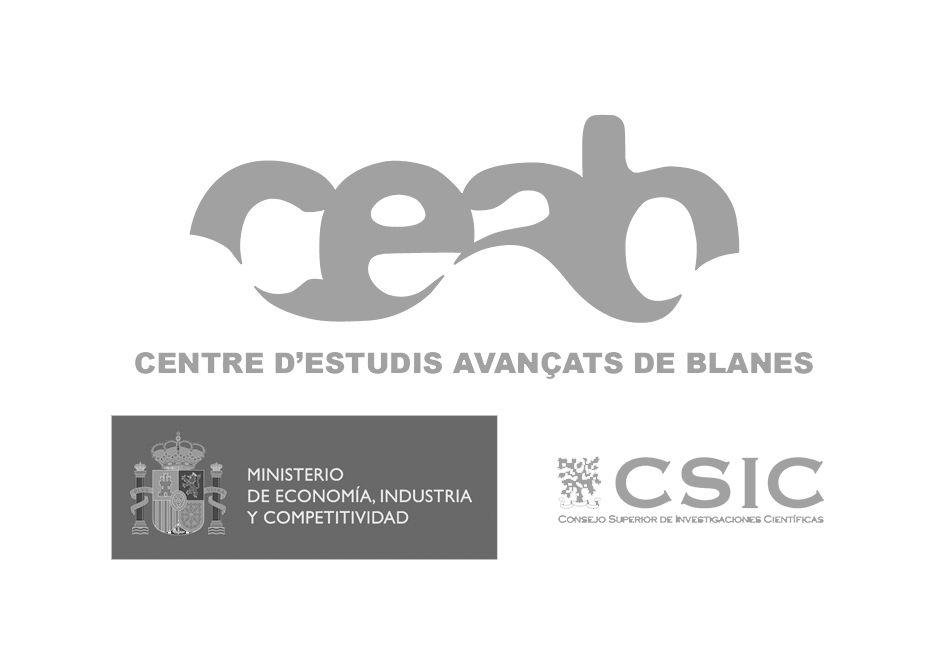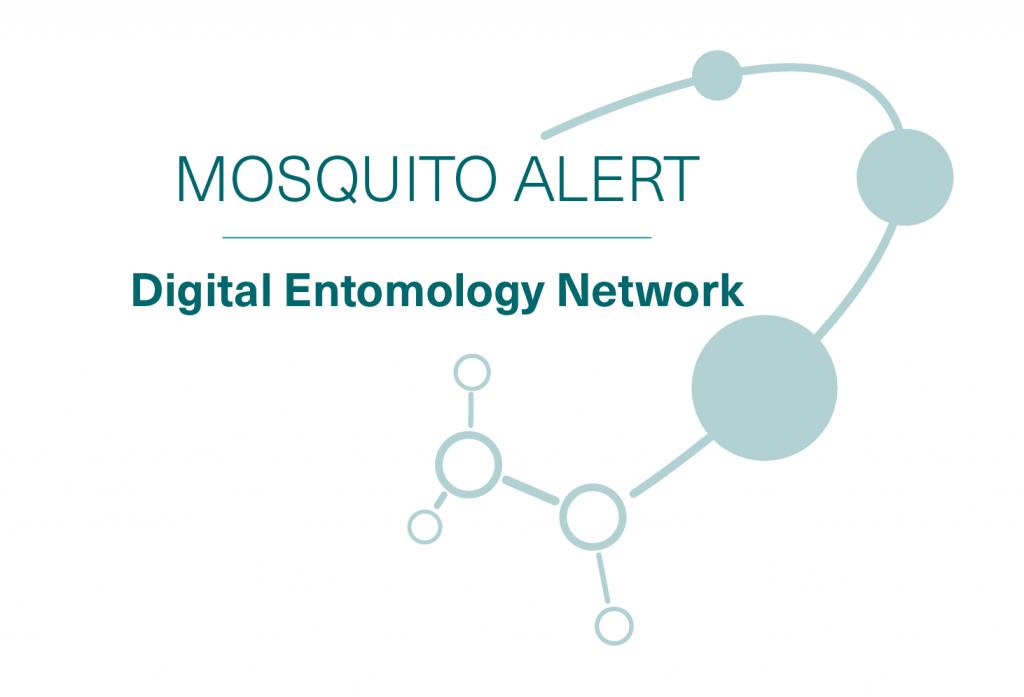

*
The Mosquito Alert Digital Entomology Network is a community of professionals created within the framework of the AIM-COST program to explore the new possibilities of the digital world to collect entomological surveillance data. Its members are expert entomologists who analyze the ability and reliability of identifying species from digital images, paying special attention to species that may be disease vectors.
*
Currently, Mosquito Alert Digital Entomology Network uses Mosquito Alert tools to monitor the presence and expansion of different invasive mosquitoes of the Aedes genus throughout Europe through citizen science within the Aedes field surveillance (AIMSurv) coordinated by AIM-COST. The members of the network analyze the photographs received through the Mosquito Alert application and identify the species and their level of uncertainty. The community of experts was created in 2020 as a result of AIM-COST, having been an essential element of the European citizen science AIMSurv. The creation of Mosquito Alert Digital Entomology Network has the objective of consolidating and giving visibility to a new way of carrying out entomological surveillance that explores the digital possibilities of our time.








Karin Bakran-Lebl
Researcher/ AGES – Austrian Agency for Health and Food Safety Ltd., Institute for Medical Microbiology & Hygiene, Department for Vector borne diseases

Selection of scientific papers
- Bakran-Lebl K, Pree S, Brenner T, Daroglou E, Eigner B, Griesbacher A, Gunczy J, Hufnagl P, Jäger S, Jerrentrup H, Klocker L, Paill W, Petermann JS, Shahi Barogh B, Schwerte T, Suchentrunk C, Wieser C, Wortha LN, Zechmeister T, Zezula D, Zimmermann K, Zittra C, Allerberger F, Fuehrer H-P. 2022. First nationwide monitoring program for the detection of potentially invasive mosquito species in Austria. Insects 13(3): 276.
- Bakran-Lebl K, Zittra C, Harl J Shahi-Barogh B, Grätzl A, Ebmer D, Schaffner F, Fuehrer H-P. 2021. Arrival of the Asian tiger mosquito, Aedes albopictus (Skuse, 1895) in Vienna, Austria and initial monitoring activities. Transboundary and Emerging Diseases 2021: 1-6.
- Bakran-Lebl K, Camp J, Kolodziejek J, Weidinger P, Hufnagl P, Cabal Rosel A, Zwickelstorfer A, Allerberger F, Nowotny N. 2021. Diversity of West Nile and Usutu virus strains in mosquitoes at an international airport in Austria. Transboundary and Emerging Diseases 2021:1-6.

Adolfo Ibáñez-Justicia
Sr. Researcher Vectors / Netherlands Institute for Vectors, Invasive plants and Plant Health (NIVIP) / Centre for Monitoring of Vectors (CMV)
Adolfo Ibáñez-Justicia, Spaniard, PhD, is since 2010 a senior researcher employed at the Netherlands Institute for Vectors, Invasive plants and Plant Health (NIVIP) of the Netherlands Food and Consumer Product Safety Authority (NVWA). Since then he worked on contingency plans, quick scans for new introduced insect species, and pest risk assessments. Since 2011 he focused his work at the Centre for Monitoring of Vectors (CMV) on collecting, analyzing and publishing data on vector species, making habitat suitability models, and advising on surveillance and control actions against invasive mosquito species. His research interests are focused on entomological surveillance, risk assessment and risk mapping of vectors of diseases.
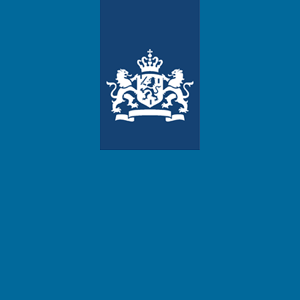

Selection of scientific papers
- Ibañez-Justicia A. 2020. Pathways for introduction and dispersal of invasive Aedes mosquito species in Europe: a review. Journal of the European Mosquito Control Association. 38:1-10.
- Ibañez-Justicia A, Teekema S, den Hartog W, Jacobs F, Dik M, Stroo A. 2018. The effectiveness of Asian Bush Mosquito (Aedes japonicus japonicus) control actions in colonised periurban areas in the Netherlands. Journal of Medical Entomology. 55 (3): 673–680
- Ibañez-Justicia A, Gloria-Soria A, den Hartog W, Dik M, Jacobs F, Stroo A. 2017. The first detected airline introductions of yellow fever mosquitoes (Aedes aegypti) to Europe, at Schiphol International airport, the Netherlands. Parasites & Vectors. 10 (1): 603.
- Ibañez-Justicia A, Cianci D. 2015. Modelling the spatial distribution of the nuisance mosquito species Anopheles plumbeus (Diptera: Culicidae) in the Netherlands. Parasites & Vectors. 8: 258.

Filiz Gunay
Assistant Professor / Hacettepe University
I received my MSc and PhD degrees in the Ecology Section, Biology Department of Hacettepe University in Ankara, Turkey as a member of the VERG Group. My PhD thesis was on the mosquito fauna of Turkey with morphological and molecular identification techniques in association with Natural History Museum in London and Smithsonian Museum of Natural History (WRBU) in Washington DC. This subject is still the basis of my research interest. I worked in IRD Montpellier, France, to prepare a computer-aided identification key of mosquitoes in Europe, North Africa and Middle East, named MosKeyTool.
I’m currently the Scientific Communication Manager of Aedes Invasive Mosquitoes -COST Action and am involved in national and international projects. An active member of SOVE since 2009, I had been elected as the Director of European Society of Vector Ecology in 2021.
Selection of scientific papers
- Akiner, MM, Ozturk, M, Baser, AB, Gunay F, Hacioglu, S, Brinkmann, A, Emanet, N, Alten, B, Ozkul, A, Nitsche, A. 2020. Arboviral screening of invasive Aedes species in northeastern Turkey: West Nile virus circulation and detection of insect-only viruses. Plos Neglected Tropical Diseases
- Dogan M, Gunay F, Puggioli A, Balestrino F, Oncu C, Alten B, Bellini R. 2016. Establishment of a satellite rearing facility to support the release of sterile Aedes albopictus males. I. Optimization of mass rearing parameters. Acta Tropica 159:62-68
- Gunay F, Alten B., Simsek F, Aldemir A, Linton YM. 2015. Barcoding Turkish Culex mosquitos to facilitate arbovirus vector incrimination studies reveals hidden biodiversity and new potential vectors. Acta Tropica 143:112-120

Gábor Kemenesi
Assistant professor, national laboratory deputy leader / National Laboratory of Virology
My main research topic is broadly related to zoonoses. It mainly includes the investigation of mosquito – and bat-borne viruses. Since my early career I focused on the discovery and general understanding of known or novel viruses and filarial nematodes. As a main result of this work, I gained significant experience of field sampling of these viruses from their natural hosts and vectors and identifying mosquitoes along with other ectoparasites using traditional and genomic methods. I participated in the investigation of multiple epizootic and epidemic events, such as the West Nile virus epidemic in Serbia, 2013 and in Hungary, 2018.
Selection of scientific papers
- Kemenesi G, Krtinić B, Milankov V, Kutas A, Dallos B, Oldal M, Somogyi N, Nemeth V, Banyai K, Jakab F. 2014. West Nile virus surveillance in mosquitoes, April to October 2013, Vojvodina province, Serbia: implications for the 2014 season. Euro Surveill. 19(16):20779.
- Kemenesi G, Dallos B, Oldal M, Kutas A, Földes F, Németh V, Reiter P, Bakonyi T, Bányai K, Jakab F. 2014. Putative novel lineage of West Nile virus in Uranotaenia unguiculata mosquito, Hungary. Virusdisease. (4):500-3.
- Kemenesi G, Kurucz K, Kepner A, Dallos B, Oldal M, Herczeg R, Vajdovics P, Bányai K, Jakab F. 2015. Circulation of Dirofilaria repens, Setaria tundra, and Onchocercidae species in Hungary during the period 2011-2013. Vet Parasitol. 214(1-2):108-13
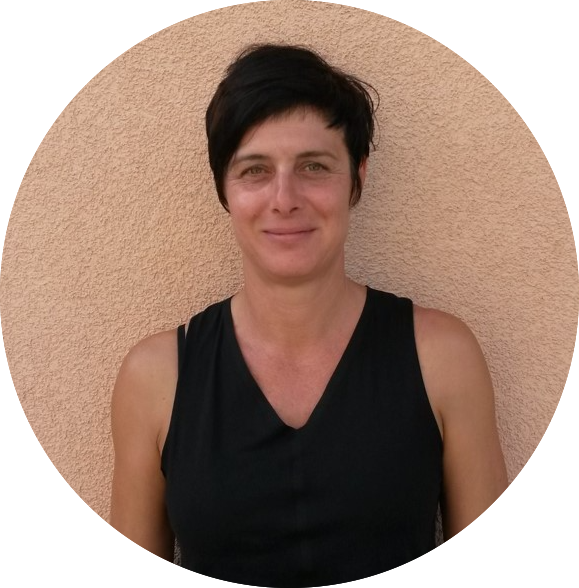
Eleonora Flacio
Vector Ecology sector/ Institute of Microbiology /SUPSI
Dr Eleonora Flacio is a biologist-ecologist with more than 20 years of experience in the surveillance and control of mosquitoes and holds a professional pest control license. She is in charge of the Aedes albopictus surveillance system in Canton Ticino (Switzerland) since the beginning of the same, i.e. in 2000. With her team, she coordinates all activities (surveillance, control and communication) of the Swiss Mosquito Network on invasive mosquitoes under the support of the Federal Office for the Environment, while for the Federal Office of Human Health and for the office of the cantonal doctor (Canton Ticino) she carries out the activities of surveillance and control of mosquito borne diseases. She is trainer for EMCA, E-SOVE and AIM-COST and national expert for mosquito determinations for the Swiss Info Fauna and the European project Mosquito Alert.
Selection of scientific papers
- Flacio E, Rossi-Pedruzzi A, Bernasconi-Casati E, Patocchi N. 2014. Culicidae fauna from Canton Ticino and report of three new species for Switzerland. Mitt. Schweiz. Entomol. Gesell. 87: 163–82.
- Flacio E, Engeler L, Tonolla Lüthy P, Patocchi N. 2015. Strategies of a thirteen year surveillance programme on Aedes albopictus (Stegomyia albopicta) in southern Switzerland. Parasites & Vectors 8 (1): 208.
- Ravasi D, Parrondo Monton D, Tanadini M, Flacio E. 2021. Effectiveness of integrated Aedes albopictus management in southern Switzerland. Parasites & Vectors 14 (1): 405.

Enkelejda Dikolli (Velo)
Head of the Vectors’ Control Unit, Dep of Epidemiology and Control of Infectious Diseases, Institute of Public Health
Enkelejda Dikolli (Velo) is a medical entomologist affiliated to the Institute of Public Health, Tirana, Albania as head of the Vectors’ Control Unit. She obtained her PhD in Medical Entomology in 2005. Research interests include vector bio-ecology and control, with focus on mosquitoes, sand flies and ticks borne disease, impact of habitat management on vector-borne disease, including developing integrated management guidelines on mosquitoes; >20 years extensive field experience of vector ecology in Albania. Advising MoH on PH risks from vector-borne disease and Authorization of Biocides (Insecticides and Repelents); in charge of entomologic and arbovirus vector surveillance, Coordinate surveillance for native/non-native mosquitoes; ticks and sand flies.
She has been coordinating the Entomological Monitoring Group for the Quality Control of the Mosquitoes Surveillance and Control Program in urban and coastal areas since 2014. She is member of the EU ECDC/EFSA VectorNet project, EU ECDC VBORNET, EU-COST EurNegVec and participate in several international networks and technical cooperation such as, EU-MediLabSecure IAEA RER5022 and INT5051. In 2019 she was nominated MC for Albania for the EU-COST AIM cost action (a program aimed to establish a network across Europe to address the risk of introduction and spread of invasive Aedes mosquitoes and their diseases).
Selection of scientific papers
- Mercier, A., Obadia, T., Carraretto, D., Velo. E., Gabiane. G., Bino. S., Vazeill. M., Gasperi. G., Dauga, C., Malacrida. A.R., Reiter. P., & Failloux. AB. 2022. Impact of temperature on dengue and chikungunya transmission by the mosquito Aedes albopictus. Sci Rep 12, 6973
- Muja-Bajraktari N, Kadriaj P, Zhushi-Etemi F, Sherifi K, Alten B, Petrić D, Velo E, Schaffner F. 2022. The Asian tiger mosquito Aedes albopictus (Skuse) in Kosovo: First record. PLoS ONE 17(3): e0264300.
- Bellini R, Michaelakis A, Petrić D, Schaffner F, Alten B, Angelini P, Aranda C, Becker N, Carrieri M, Di Luca M, Fălcuţă E, Flacio E, Klobučar A, Lagneau C, Merdić E, Mikov O, Pajovic I, Papachristos D, Sousa CA, Stroo A, Toma L, Vasquez MI, Velo E, Venturelli C, Zgomba M. 2020. Practical management plan for invasive mosquito species in Europe: I. Asian tiger mosquito (Aedes albopictus). Travel Med Infect Dis. 2020 May-Jun;35:101691. doi: 10.1016/j.tmaid.2020.101691
- Dvorak V, Kasap OE, Ivovic V, Mikov O, Stefanovska J, Martinkovic F, Omeragic J, Pajovic I, Baymak D, Oguz G, Hlavackova K, Gresova M, Gunay F, Vaselek S, Ayhan N, Lestinova T, Cvetkovikj A, Soldo DK, Katerinova I, Tchakarova S, Yılmaz A, Karaoglu B, Iranzo JR, Kadriaj P, Velo E, Ozbel Y, Petric D, Volf P, Alten B Sand flies (Diptera: Psychodidae) in eight Balkan countries: historical review and region-wide entomological survey. Parasit Vectors. 2020; 13: 573. Published online 2020 Nov 11. doi: 10.1186/s13071-020-04448-w

Kornélia Kurucz
Assistant professor / Institute of Biology, Faculty of Sciences, University of Pécs
As a biologist my scientific interest was always on urban ecology and human-mediated effects on animal communities. My research activites are mainly related to understand the ecological background of zoonoses and vector-borne diseases. As a main result of this work, I gained significant experience of field sampling of different host and vector organisms as well as investigation of pathogens by molecular biological techniques. Since 2016, I coordinated several projects focus on vector ecology, monitoring and taxonomy, with a special focus on Aedes invasive mosquito species.
Selection of scientific papers
- Kurucz K, Manica M, Delucchi L, Kemenesi G, Marini G. 2020. Dynamics and distribution of the invasive mosquito Aedes koreicus in a temperate European city. International journal of environmental research and public health. 17(8): 2728.
- Kurucz K, Kiss V, Zana B, Jakab F, Kemenesi G. 2018. Filarial nematode (order: Spirurida) surveillance in urban habitats, in the city of Pécs (Hungary). Parasitology Research. 117(10): 3355-3360.
- Kemenesi G, Kurucz K, Kepner A, Dallos B, Oldal M, Herczeg R, Vajdovics P, Bányai K, Jakab F. 2015. Circulation of Dirofilaria repens, Setaria tundra, and Onchocercidae species in Hungary during the period 2011-2013. Vet Parasitol. 214(1-2):108-13.

Mihaela Kavran
Assistant professor at the Department of Phytomedicine and Environmental Protection, University of Novi Sad
My scientific interest is entomology with the main focus of my researches in the field of medical entomology. I have been working in Laboratory for Medical and Veterinary Entomology for nine years. My work consists of maintenance of Culex pipiens and Aedes albopictus colonies. With experienced team I am involved in biocides efficacy evaluation during the mosquito control campaigns. Since 2014 I have been working on surveillance of mosquito population in various habitats through larval and adult population seasonal monitoring, including invasive species Aedes albopictus. Same period I have been conducting West Nile Virus surveillance in mosquitoes on the territory or Vojvodina, Serbia.
Selection of scientific papers
- Petrović T, Šekler M, Petrić D, Vidanović D, Debeljak Z, Lazić G, Lupulović D, Kavran M, Samojlović M, Ignjatović Ćupina A, Tešović B. 2021. Intensive West Nile Virus Circulation in Serbia in 2018—Results of Integrated Surveillance Program. Pathogens. 10(10): 1294.
- Janssen N, Graovac N, Vignjević G, Bogojević MS, Turić N, Klobučar A, Kavran M, Petrić D, Ćupina AI, Fischer S, Werner D. 2020. Rapid spread and population genetics of Aedes japonicus japonicus (Diptera: Culicidae) in southeastern Europe (Croatia, Bosnia and Herzegovina, Serbia). PLoS One. 15(10): e0241235.
- Kavran M, Zgomba M, Weitzel T, Petric D, Manz C, Becker N. 2018. Distribution of Anopheles daciae and other Anopheles maculipennis complex species in Serbia. Parasitology Research. 117(10): 3277-3287.

Isra Deblauwe
Institute of Tropical Medicine Antwerp
Isra Deblauwe holds a PhD in sciences and has over 15 years of experience in veterinary and medical entomology with a special interest in vector ecology, monitoring and taxonomy. Since 2012, she coordinated several Aedes invasive mosquito species (AIM) monitoring projects. She is currently a member of the VEN (Vectornet Entomological Network). She works at the Entomology Unit of ITM.
Selection of scientific papers
- Deblauwe I, De Wolf K, De Witte J, Schneider A, Verlé I, Vanslembrouck A, Smitz N, Demeulemeester J, Van Loo T, Dekoninck W, Krit M, Madder M, Müller R, Van Bortel W. 2021 From a long-distance threat to the invasion front: a review of the invasive Aedes mosquito species in Belgium between 2007 and 2020. Parasites and Vectors (accepted on 26 April 2022)
- Deblauwe I, Ibáñez-Justicia A, De Wolf K, Smitz N, Schneider A, Stroo A, Jacobs F, Vanslembrouck A, Gombeer S, Dekoninck W, Müller R, Van Bortel W. 2021 First detections of Culiseta longiareolata (Culicidae, Diptera) in Belgium and the Netherlands. Journal of Medical Entomology. 58 (6): 2524-2532.
- Deblauwe I, Demeulemeester J, De Witte J, Hendy A, Sohier C, Madder M. 2015 Increased detection of Aedes albopictus in Belgium: no overwintering yet, but an intervention strategy is still lacking. Parasitology Research.114: 3469-3477.
- Deblauwe I, Sohier C, Schaffner F, Rakotoarivony LM, Coosemans M. 2014. Implementation of surveillance of invasive mosquitoes in Belgium according to the ECDC guidelines. Parasites and Vectors 7(1): 201.

Përparim Kadriaj
Vet/Entomologist
Përparim Kadriaj is a vet/entomologist affiliated to the Institute of Public Health, Tirana, Albania. He has obtained his PhD in Veterinary and Medical Entomology in 2018. Responsibilities and duties: Control of Vector Diseases in Albania; Vector surveillance and control; conducting field trips in the framework of different research projects and emergencies in case of disease outbreaks; coordinating and conducting scientific research.
Main research interest is vector ecology and control, with a focus on ticks borne diseases, mosquitoes and sand flies. Specific interests invasive Aedes mosquitoes, WNV and Culex, Hyalomma, Ixodes and Rhipicephalus ticks, He has contributed in establishing and implementation of the Mosquitoes Control Program in urban and coastal areas of Albania focused on the control of native and invasive species and now he is part of the monitoring group for the evaluation of the efficacy of the treatment through entomological surveillance.
Selection of scientific papers
- Prudhomme J, Velo E, Bino S, Kadriaj P, Mersini K, Gunay F, Alten B. 2019. Altitudinal variations in wing morphology of Aedes albopictus (Diptera, Culicidae) in Albania, the region where it was first recorded in Europe. Parasite.2019;26:55.doi:10.1051/parasite/2019053. Epub 2019 Sep 6. PMID: 31489838
- Tisseuil C, Velo E, Bino S, Kadriaj P, Mersini K, Shukullari A, Simaku A, Rogozi E, Caputo B, Ducheyne E, della Torre A, Reiter P, Gilbert M. 2018. Forecasting the spatial and seasonal dynamic of Aedes albopictus oviposition activity in Albania and Balkan countries. PLoS Negl Trop Dis. 2018 Feb; 12(2): e0006236. Published online 2018 Feb 12.
- Papa A, Velo E, Kadiaj P, Tsioka K, Kontana A, Kota M, Bino S. 2017. Crimean-Congo hemorrhagic fever virus in ticks collected from livestock in Albania. Infect Genet Evol. 2017 Oct;54:496-500. doi: 10.1016/j.meegid.2017.08.017. Epub 2017 Aug.
- Enkelejda Velo, Perparim Kadriaj, Kujtim Mersini, Ada Shukullari, Blerta Manxhari, Artan Simaku, Adrian Hoxha, Beniamino Caputo, Luca Bolzoni, Roberto Rosà, Silvia Bino, Paul Reiter and Alessandra della Torre. 2016. Enhancement of Aedes albopictus collections by ovitrap and sticky adult trap. Parasites & Vectors 9:223.

Elton Rogozi
Senior Medical Entomologist at Vectors’ Control Unit,Control of Infectious Diseases and Epidemiology Department, Institute of Public Health
Dr. Elton Rogozi is working since 2005 as a Medical Entomologist and Rodentologist in the Institute of Public Health, Tirana, Albania. He is graduated for Special Biology (2005), and did his Master of Science in Zoology (2008). In 2010 he was graduated for Diploma in Applied Parasitology and Entomology in Malaysia and defended his PhD in 2013 in the University of Tirana on Entomology. His main research includes the studies on the ecology, taxonomy and control of mosquitoes and rodents in Albania. He studies the Anopheles malaria vectors, Aedes invasive species and Culex mosquitoes, their capacity and competency as vectors of pathogens in human. He is part of the commission that evaluate the dossiers for the importation of biocides in Albania. As well, he is involved as an expert of entomology in the 8 years long program of the mosquito control in Albania on the entomological surveillance and monitoring of the process of mosquito larval control. His main interest is the researches focused on mosquitoes and their control. He has been part of several projects, has published several papers for mosquitoes and rodents, as well, he has participated with oral and poster presentations in Scientific Conferences and Congresses in Europe, USA and Asia. He is lecturer/pedagogue of “Health Education” in the University of Tirana in the Department of Biology for the second grade master students.
My favourite mosquito species is the Asian tiger mosquito, Aedes albopictus, which was firstly noted and reported in Albania in 1979. The species was thought to be transported from China with the used tired with larvae, due to the communication with China and Comuniusm System in Albania during the early 1979’s. It is one of the main and most important vectors in the group of mosquitoes, which is a family of more than 3500 species in the Culicidae family of the Diptera order. Aedes albopictus is the principal vector of several viruses and pathogen agents and an exotic and beautiful mosquito species. Its habitat and distribution is as diverse, as I feel that i’s the most important mosquito to be studied and with new techniques of collection and surveillance if its populations.
Selection of scientific papers
- Elton Rogozi, Rohani bt. Ahmad, Zamree Ismail and Silva Bino. Biting activityof some mosquito species in thre Malay recreational parks and their role in public health. “Medical Journal” Ministry of Health, 2011, Nr. 4, pp. 6-14.
- Elton Rogozi, Rohani bt. Ahmad, and Zamree Ismail, 2012. Distribution and species composition of mosquitoes in three Malay recreational parks. Albanian Medical Journal: Ministry of Health, December 2012, No. 4.
- Elton Rogozi, Rohani Bt. AHMAD and Z. ISMAIL, 2012. Biological diversity and species similarity of mosquitoes in three Malay recreational parks Selangor, Malaysia. Bulletin of Science, Faculty of Natural Science, No. 14, pp 189-2001.
- Elton Rogozi, Ferdinand Bego, Anna Papa, Kujtim Mersini and Silva Bino, 2012. Distribution and ecology of small mammals in Albania. International Journal of Environmental Health Research, 23(3):258- 68.

Maria Sophia Unterköfler
PhD Student, EVPC Resident, Insitute of Parasitology, University of Veterinary Medicine Vienna
21.01.2020: Doctor’s degree in Veterinary Medicine at the Vetmeduni Vienna 01.02.2012: Master’s degree in Veterinary Medicine at the Vetmeduni Vienn
10/2013–10/2015 Assisting veterinarian Equine hospital at Kirchberg (Germany) 10/2012–09/2013 Internship equine medicine University of Veterinary Medicine Vienna 04/2012–07/2012 Internship Equine hospital Troytown (Ireland)
Selection of scientific papers
- Fuehrer HP, Morelli S, Unterköfler MS, Bajer A, Bakran-Lebl K, Dwużnik-Szarek D, Farkas R, Grandi G, Heddergott M, Jokelainen P, Knific T, Leschnik M, Miterpáková M, Modrý D, Petersen HH, Skírnisson K, Vergles Rataj A, Schnyder M, Strube C. 2021. Dirofilaria spp. and Angiostrongylus vasorum: Current Risk of Spreading in Central and Northern Europe. Pathogens. 10(10):1268.
- Hund A, Reithofer J, Barogh BS, Unterköfler MS, Harl J, Fuehrer HP. 2021. Emergence of Parafilaria bovicola in Austria. Animals. 11(10):2966.
- Kulmer LM, Unterköfler MS, Fuehrer HP, Janovska V, Pagac M, Svoboda M, Venco L, Leschnik M. 2021. First Autochthonous Infection of a Cat with Dirofilaria immitis in Austria. Pathogens. 10(9):1104

Diego Parrondo Montón
ECOVET – IM / SUPSI
My work in the Vector Ecology sector (ECOVET-IM / SUPSI) is very diverse. We conduct scientific research studies on mosquitoes (mostly invasive, such as Ae. albopictus, Ae. japonicus and Ae.koreicus). We also coordinate entomological surveillance and control of invasive mosquitoes in the country.
In addition, I carry out teaching and academic works and participated in entomological projects covering other vectors such as sandflies, blackflies etc.
Understanding the problem, through scientific study, and having the operational and management capacity to implement IVM (Integrated vector management) allows us to solve serious problems that threaten public health and the welfare of citizens
∗
My favourite mosquito species is the Asian bush mosquito, Aedes japonicus, because they like to be in the woods and the colour of their thoraxes are like an artwork.
Selection of scientific papers
- Ravasi, D.; Parrondo Monton, D.; Guidi, V; Flacio, E. 2019. Evaluation of the public health risk for autochthonous transmission of mosquito-borne viruses in southern Switzerland. Med. Vet. Entomology. 34:244
- Ravasi, D.; Parrondo Monton, D.; Tanadini, M; Flacio, E. 2021. Effectiveness of integrated Aedes albopictus management in southern Switzerland. Parasites and Vectors.14: 405.
- ECOVET. 2021. Rapporto di attività – Sorveglianza e controllo della zanzara tigre (Aedes albopictus) in canton ticino nel 2021. Divisione della salute pubblica.

Nikolina Sokolovska
Head of Unit for vector control and Laboratory of entomology / PHI Center for public health-Skopje, North Macedonia
MSci.Nikolina Sokolovska is working since 2012 as a Medical Entomologist in PHI Center for public health-Skopje, North Macedonia. She is graduated agriculture engineer, University “Ss. Cyril and Methodius” – Skopje, Faculty for Agricultural Sciences and Food. Master in Science of PHYTOMEDICINE (Entomology) the Faculty of Agricultural Sciences and Food, Skopje. Her main research includes the studies on the ecology, taxonomy and control of mosquitoes and continuous international relationship. The entomological team managed by Nikolina proved for the first time the presence of the Asian tiger mosquito in North Macedonia in 2016. She is preparing expert opinions on the implementation of preventive fumigation to prevent and suppress the vector – transmitted diseases in the territory of the local self- developed in Skopje, Monitoring of mosquitoes on the territory of the City of Skopje, Improving and Surveillence of the invasive mosquitoes (Aedes ssp.) on the territory Republic of North Macedonia, her team together with team from IPH prepare action plan for surveillance West Nile virus in all territory. She has been part of several projects: COST TD 1303 – EurNegVec (2013-2017) MC; IAEA TCRER 5022 GIS – (2016 -2020); MediLab Secure; VectorNet; COST IAM CA 17108–(2018- 2022)MC.
∗
My favourite mosquito species is the Asian tiger mosquito, Aedes albopictus, the species established in North Macedonia 2016, and in the Capital Skopje 2017 and is intensively expanding through new territories.
Selection of scientific papers
- Nikolina S., Jovanka K., Shemsi M., Liljana L., Luljzime B., Zlatko A. Our Experience in Collecting Tiger Mosquitoes Using Ovitraps in Strumica, Gevgelija and the Border Crossing to Greece, DOI:10.17265/2328-7136/2017.06.010
- Srgjan M.,Paolo P.,Jovana S., Aleksandar C., Kiril K., Igor Dj., Gordana K., Nikolina S., Francesca B., Stefano G., Giorgia A.First comprehensive study on West Nile in the former Yugoslav Republic of Macedonia (FYROM)EFSA 2018 Conference: SCIENCE, FOOD, SOCIETY.EFSA JOURNAL
- Nikolina S., Jovanka K., Shemsi M., Liljana L., Luljzime B., Zlatko A.
- Surveillance of invasive mosquitoes in the Republic of Macedonia in 2016-2017, VI Congress of Macedonian Microbiologist with international participation, 2018. ISSN 0025-1097
- Nikolina S., Liljana L., Zlatko A.Monitoring of the mosquitoes in Skopje 2016 and impact of flood in municipality Gazi Baba of the mosquitoes populations, International Conference of Applied Sciences Engineering and Mathematics, 2017 Balkan University
- Mirjana S., Vladimir V., Aleksandra P., Snezana M., Tatjana P., Vladimir P., Dajana F L., Mirjana K. L.,Jelena P., Nurka P., Ljubica J., Nikolina S., Mioljub R. Epidemiological study on the incidence of haemorrhagic fever with renal syndrome in five Western Balkan countries for a 10‐year period: 2006–2015. January 2022 Zoonoses and Public Health 69(9) DOI: 10.1111/zph.12908

Hans-Peter Fuehrer
PD Mag. Dr. Institute of Parasitology – Vetmeduni Vienna, Austria
Hans-Peter is head of the vector and vector-borne disease group at the Institute of Parasitology (Vetmeduni Vienna, Austria). His main focus is set on mosquitoes and mosquito-borne diseases, molecular diagnostics, invasion biology and global change.
∗
My favourite mosquito species is Toxorhynchites sp., because it is cute.
Selection of scientific papers
- Bakran-Lebl K, Pree S, Brenner T, Daroglou E, Eigner B, Griesbacher A, Gunczy J, Hufnagl P, Jäger S, Jerrentrup H, Klocker L, Paill W, Petermann JS, Barogh BS, Schwerte T, Suchentrunk C, Wieser C, Wortha LN, Zechmeister T, Zezula D, Zimmermann K, Zittra C, Allerberger F, Fuehrer HP. 2022. First Nationwide Monitoring Program for the Detection of Potentially Invasive Mosquito Species in Austria. Insects. 2022 Mar 10;13(3):276
- Bakran-Lebl K, Zittra C, Harl J, Shahi-Barogh B, Grätzl A, Ebmer D, Schaffner F, Fuehrer HP. 2021. Arrival of the Asian tiger mosquito, Aedes albopictus (Skuse, 1895) in Vienna, Austria and initial monitoring activities. Transbound Emerg Dis. 2021 Nov;68(6):3145-31502
- Fuehrer HP, Schoener E, Weiler S, Barogh BS, Zittra C, Walder G. 2020. Monitoring of alien mosquitoes in Western Austria (Tyrol, Austria, 2018). PLoS Negl Trop Dis. 2020 Jun 23;14(6):e0008433

Ana Klobučar
Head of Vector and Pest Control Unit, Epidemiology Department / Andrija Štampar Teaching Institute of Public Health, Zagreb
Ana Klobučar, PhD, is medical entomologist with more than 20 years of experience in the surveillance of vectors (arthropods and rodents) and professional pest control. In the focus of her research are the surveillance and control of mosquitoes, especially invasive species. She is in charge of the Aedes albopictus surveillance in Zagreb since the first record in 2004, and in creating a mosquito control program for Zagreb area. She is collaborator on several projects related to mosquito surveillance and the epidemiology of neuroinvasive arboviral infections in Croatia, also on the Aedes Invasive Mosquitoes COST Action project. She is a Croatian national expert for mosquito identification in the project Mosquito Alert.
∗
My favourite mosquito species is Aedes geniculatus., because it has a beautiful appearance, with purple glow.
Selection of scientific papers
- Klobucar A, Savic V, Curman Posavec M, Petrinic S, Kuhar U, Toplak I, Madic J, Vilibic-Cavlek T. 2021. Screening of Mosquitoes for West Nile Virus and Usutu Virus in Croatia, 2015-2020. Tropical Medicine and Infectious. Disease. 6, 45; 12.
- Klobučar A, Lipovac I, Žagar N, Mitrović‐Hamzić S, Tešić V, Vilibić‐Čavlek T, Merdić E. 2019. First record and spreading of the invasive mosquito Aedes japonicus japonicus (Theobald, 1901) in Croatia. Medical and Veterinary Entomology, 33, 1K
- Klobučar A, Benić N, Krajcar D, Kosanović-Ličina ML, Tešić V, Merdić E, Vrućina I; Savić V, Barbić Lj, Stevanović V et al. 2016. An overview of mosquitoes and emerging arboviral infections in the Zagreb area, Croatia. Journal of Infection in Developing Countries, 10, 12; 1286-1293.

Marcela Curman Posavec
Biologist / Andrija Stampar Teaching Institute of Public Health, Zagreb
I graduated biology in 2015 at the Faculty of Science in Zagreb. In 2016 I started to work in Vector and Pest control unit, Department of Epidemiology at the Andrija Stampar Teacing Institute of Public Health. This is where my connection to entomology begins, and mosquitoes in particular. Monitoring vectors is of great help to the overall health of the population. My research is focused on monitoring mosquitoes, especially the invasive species Aedes albopictus and Aedes japonicus. I do identification of mosquito adults and larvae. There is no better feeling when in a pile of mosquito samples I identify some species that are not so common in Zagreb area. I joined the Mosquito Alert in 2021.
∗
My favourite mosquito species is Aedes albopictus, which is different from other species, noticeable, persistent and adaptable. I also like Aedes geniculatus, which shades other species with its purple reflection.
Selection of scientific papers
- Klobucar A, Savic V, Curman Posavec M, Petrinic S, Kuhar U, Toplak I, Madic J, Vilibic-Cavlek T. 2021. Screening of Mosquitoes for West Nile Virus and Usutu Virus in Croatia, 2015-2020. Tropical Medicine and Infectious. Disease. 6, 45; 12.
- Stevanovic V, Vilibic-Cavlek T, Savic V, Klobucar A, Kovac S, Curman Posavec M, Petrinic S, Bogdanic M, Santini M, Tesic V, Soares N, Barbic LJ. 2022.. Surveillance of of Tahyna Orthobunyavirus in Urban Areas in Croatia – The ‘’One health” Approach. Trop. Med. Infect. Dis. 7, 320.
- Vilibic-Cavlek T, Savic V, Klobucar A, Ferenc T., Ilic M, Bogdanic M, Tabain I, Stevanovic V, Santini M, Curman Posavec M, Petrinic S, Benvin I, Ferencak I, Rozac V, Barbic Lj. 2021. Emerging Trends in the West Nile Virus Epidemiology in Croatia in the ‘One Health’ Context,2011-2020. Trop. Med. Infect. Dis. 6(3), 140

Francis Schaffner
Consultant (free-lance) & Associate researcher at the University of Zurich/Institute of Parasitology
Francis Schaffner, French, PhD, is a medical and veterinary entomologist, focusing first on mosquitoes, but also on biting midges, sand flies, and biting flies. Since 2016, he is working as freelance consultant, mainly supporting international bodies (ECDC, EFSA, WHO) and national authorities to develop networking and capacity building (e.g., VectorNet), performing needs assessments and designing risk management plans for vector-borne diseases. Fhttp://www.mosquitoalert.com/wp-admin/post.php?post=29652&action=edit&lang=en#rancis has now 36 years of experience in surveillance, control, taxonomy, ecology of insect vectors and transmission of human and animal vector-borne disease pathogens, in Europe but also in EU Overseas Countries and Territories, Middle East and Northern Africa. He is a leader in mosquito taxonomy and in management of invasive mosquitoes. He’s the current president of the European Mosquito Control Association.
∗
My favourite mosquito species is Anopheles claviger s.l.., because it is a discrete species complex that I collected across Europe for my PhD thesis work.
.
Selection of scientific papers
- Wint W., Jones P., Kraemer M., Alexander N. & Schaffner F. 2022. Past, present and future distribution of the yellow fever mosquito Aedes aegypti: the European paradox. Science of the Total Environment. 847: 157566.
- Schaffner F. & Ries C. 2019. First evidence and distribution of the invasive alien mosquito Aedes japonicus (Theobald, 1901) in Luxembourg. Bulletin de la Société des naturalistes luxembourgeois. 121: 169-183
- Robert V., Günay F., Le Goff G., Boussès P., Sulesco T., Khalin A., Medlock J., Kampen H., Petrić D. & Schaffner F. 2019. Distribution chart for Euro-Mediterranean mosquitoes (western Palaearctic region). Journal of the European Mosquito Control Association. 37: 1-28
- Schaffner F., Medlock J. & Van Bortel W. 2013. Public health significance of invasive mosquitoes in Europe. Clinical Microbiology and Infection. 19: 685-692.

Ioanna Lytra
Scientific Directorate of Entomology and Agricultural Zoology /Benaki Phytopathological Institute
I obtained my PhD in entomology in 2015 from the Agricultural University of Athens, Greece. My PhD thesis research dealed with the population dynamic of mosquitoes in ricefields of western Greece.I am research assistant at the Scientific Directorate of Entomology and Agricultural Zoology of Benaki Phytopathological Institute since 2017. My expertise is the taxonomy of insects of medical and agricultural interest as well as quarantine insects. I am also involving in maintenance of insect colonies
∗
My favourite mosquito species is Culex tritaeniorhynchus and Uranotaenia unguiculata, because Cx. tritaeniorhynchus was the most common mosquito species in my PhD mosquito survellaince and Ur. unguiculata is a beautiful tiny shiny mosquito
.
Selection of scientific papers
- Balatsos, G., Puggioli, A., Karras, V., Lytra, I., Mastronikolos, G., Carrieri, M., Papachristos, D.P, Malfacini, M., Stefopoulou, A., Ioannou, Ch. S., Balestrino, F., Bouyer, J., Petrić, D., Pajović, I., Kapranas, A., Papadopoulos, N.T., Milonas, P.G., Bellini, R., Michaelakis, A., 2021 Reduction of egg fertility of Aedes albopictus mosquitoes in Greece following releases of imported sterile males. Insects, 12(2): 110
- Stefopoulou, A., LaDeau, S.L., Syrigou, N., Balatsos, G., Karras, V., Lytra, I., Boukouvala, E., Papachristos, D.P., Milonas, P.G., Kapranas, A. and Vahamidis, P., 2021. Knowledge, Attitude, and Practices Survey in Greece before the Implementation of Sterile Insect Technique against Aedes albopictus. Insects. 12(3): 212.
- Lytra, I. and Emmanouel, N., 2014 Study of Culex tritaeniorhynchus and species composition of mosquitoes in a rice field in Greece. Acta Tropica. 134: 66.

Antonios Michaelakis
Head Research Scientist Laboratory of Insects & Parasites of Medical Importance
Scientific Directorate of Entomology and Agricultural Zoology / Benaki Phytopathological Institute
Antonios Michaelakis is an agriculturalist-entomologist, Research Director. Among others, he is the assistant scientific officer of the National program for the quarantine pests, he coordinated the EU project LIFE CONOPS (www.conops.gr) and currently is the leader of the WG2: Conventional & Innovative Control Tools for the AIM COST Action (https://www.aedescost.eu) and the Chief Technical Counterpart in Europe for the pilot application of SIT in Aedes albopictus control (IAEA TC-RER5026).
∗
My favourite mosquito species is Aedes albopictus., because I love it’s plasticity in urban areas!
.
Selection of scientific papers
- Michaelakis, A., Balestrino, F., Becker, N., Bellini, R., Caputo, B., Della Torre, A., Figuerola, J., L’Ambert, G., Petric, D., Robert, V. and Roiz, D., 2021. A case for systematic quality management in mosquito control programmes in Europe. International Journal of Environmental Research and Public Health, 18(7), p.3478.
- Bellini, R., Michaelakis, A., Petrić, D., Schaffner, F., Alten, B., Angelini, P., Aranda, C., Becker, N., Carrieri, M., Di Luca, M. and Fălcuţă, E., 2020. Practical management plan for invasive mosquito species in Europe: I. Asian tiger mosquito (Aedes albopictus). Travel medicine and infectious disease, 35, p.101691.
- Stefopoulou, A., LaDeau, S.L., Syrigou, N., Balatsos, G., Karras, V., Lytra, I., Boukouvala, E., Papachristos, D.P., Milonas, P.G., Kapranas, A. and Vahamidis, P., 2021. Knowledge, Attitude, and Practices Survey in Greece before the Implementation of Sterile Insect Technique against Aedes albopictus. Insects, 12(3), p.212.

Jakovos Demetriou
PhD student / Department of Ecology and Systematics, Faculty of Biology, National and Kapodistrian University of Athens, Greece
Darwin Plus Fellow / Enalia Physis Environmental Research Centre, Nicosia, Cyprus
Darwin Plus Fellow / Joint Services Health Unit, RAF Akrotiri BFPO 57, Cyprus
Jakovos Demetriou is a PhD student at the Department of Ecology and Systematics, Faculty of Biology, National and Kapodistrian University of Athens, Greece. He also works as a project officer/Darwin Fellow on DPLUS124 (https://dplus.darwininitiative.org.uk/project/DPLUS124/), funded by the Darwin Initiative and supervised by Dr Angeliki F Martinou and Prof Helen E Roy. Jakovos primarily researches invasive alien species of Greece and Cyprus, focusing on the biodiversity of alien insects and their impacts. He is particulalry interested in both native and alien Hymenoptera, studying in greater detail their ecology and systematics.
∗
My favourite mosquito species is Aedes albopictus., because It is a remarkable species that has managed to spread around the world.
.
Selection of scientific papers
- Demetriou J, Díaz-Calafat J, Kalaentzis K, Kazilas C, Georgiadis C, Turrisi GF, Koutsoukos E. 2022. The alien Black-and-yellow Mud Dauber Sceliphron caementarium (Drury, 1773) (Hymenoptera, Sphecidae) continues its spread: new citizen-science records from Eastern Europe and the Balkans. CheckList. 18(3): 535-543.
- Demetriou J, Koutsoukos E, Radea C, Roy HE, Arianoutsou M, Martinou AF. 2022. Uninvited pests of an unwelcomed tree: A survey on alien chalcidoid wasps (Hymenoptera: Chalcidoidea) associated with eucalyptus trees in Cyprus. BioInvasions Records. 11(2): 390-400.
- Kalaentzis K, Kazilas C, Demetriou J, Koutsoukos E, Avtzis DN, Georgiadis C. 2021. Alientoma, a dynamic database for alien insects in Greece and its use by citizen scientists in mapping alien species. Insects. 12(12): 1101
- Kazilas C, Kalaentzis K, Demetriou J, Koutsoukos E, Strachinis I, Andriopoulos P. 2021. Utilization of citizen science data to monitor alien species: the box tree moth Cydalima perspectalis (Walker, 1859) (Lepidoptera: Crambidae) invades natural vegetation in Greece. BioInvasions Records. 10(4): 1032-1044



